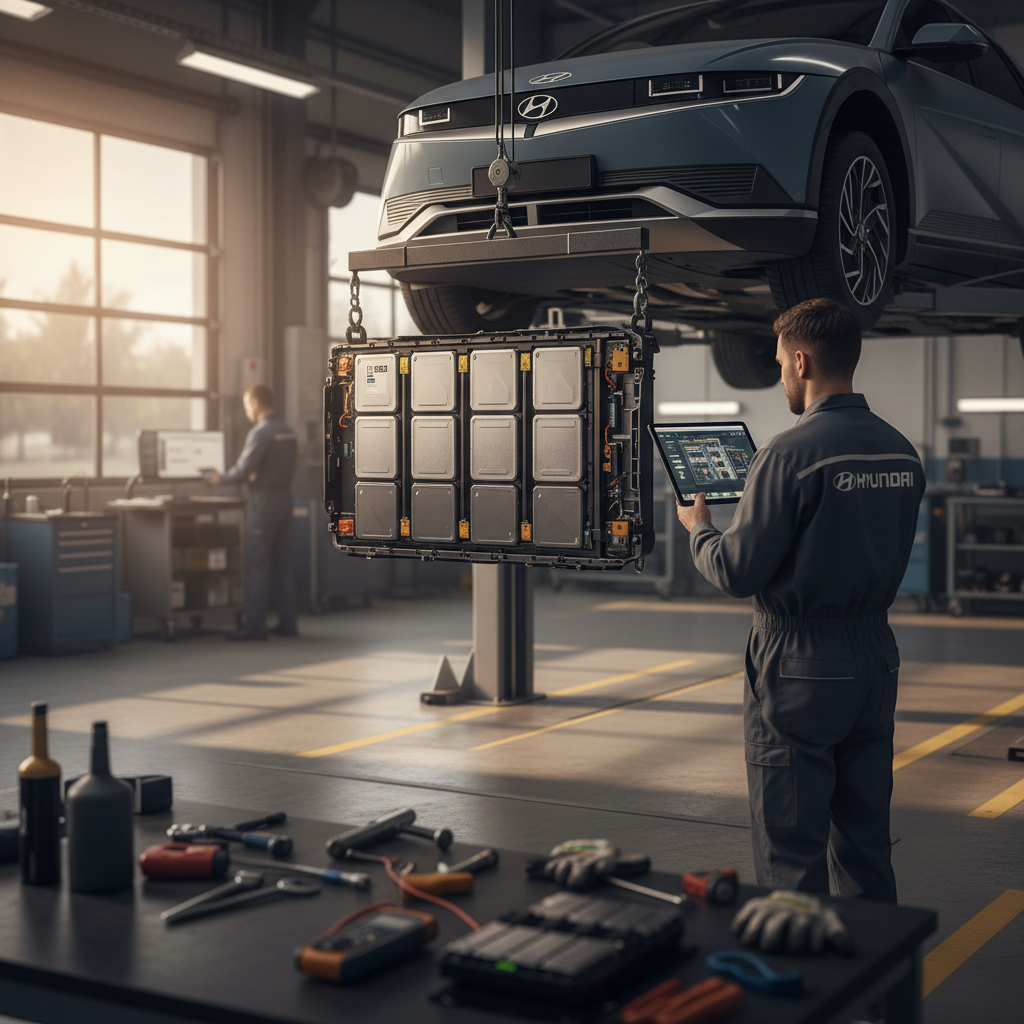If you’ve typed “automotive electric near me” into a search bar, you’re probably trying to solve one of three problems fast: find someone who can work on your EV, locate a nearby charger, or figure out where to buy a reliable electric car without getting burned. This guide turns that vague search into concrete steps you can take today.
What People Usually Mean by “Automotive Electric”
Why You’re Searching “Automotive Electric Near Me”
Electric vehicles are now firmly in the mainstream. At the same time, many traditional repair shops and dealerships are still catching up. When you search “automotive electric near me”, you’re really asking: “Who around me actually understands EVs, batteries, and high‑voltage systems, and who’s just guessing?”
1. Service and repair for EVs
Maybe a dashboard light just appeared, your range suddenly dropped, or you’re due for routine maintenance. You want a shop that actually trains on high‑voltage systems, not just oil changes.
2. Charging and daily usability
You might be asking where you’ll charge if you switch to electric, or you already own an EV and need more reliable public charging near home or work.
There’s a third group, too: shoppers eyeing the used EV deals they’re hearing about. Prices for pre-owned EVs in the U.S. have dropped sharply compared with a few years ago, which is great news if you can verify battery health and pricing before you sign anything.
Quick Tip
Types of Automotive Electric Shops and Services
Not every place that pops up under “automotive electric near me” does the same thing. Some focus on charging, others on repairs, others on sales. Here’s how to tell them apart and what each is actually good for.
Who Does What in Automotive Electric
Understand the main players before you make an appointment
EV Charging Locations
What they do: Provide Level 2 or DC fast charging while you shop, work, or travel.
Best for: Daily top‑ups, road trips, apartment dwellers, and workplaces.
EV-Capable Repair Shops
What they do: Diagnose and repair EV systems, from tires and brakes to high‑voltage components and thermal management.
Best for: Warning lights, odd noises, range changes, software/firmware issues.
Dealers & Used EV Retailers
What they do: Sell, trade, and sometimes service electric vehicles.
Best for: Buying or trading in an EV, securing financing, and getting warranty support.
Not All Shops Are Ready for EVs
How to Find EV-Capable Repair Shops Near You
A good EV mechanic doesn’t just replace parts, they understand battery management, software updates, and how your charging habits affect long‑term health. Here’s how to use that “automotive electric near me” search to uncover the right kind of shop.
Checklist: Spotting a True EV-Capable Shop
1. Look for explicit EV language
Scan the shop’s site or listing for phrases like “electric vehicle service,” “EV battery diagnostics,” “high‑voltage safety training,” or specific EV brands they support (Tesla, Hyundai, Ford, etc.). Generic “electrical repair” isn’t enough.
2. Confirm technician training
Call and ask if their technicians are trained or certified on EVs. A serious shop will be proud to say yes and may mention OEM training, manufacturer programs, or specialized tools for high‑voltage systems.
3. Ask what EV work they actually do
Some shops only handle tires and brakes on EVs. That’s useful, but if you’re chasing down a sudden range drop or battery error, you want someone set up for diagnostics, not just basic maintenance.
4. Check if they can work with your warranty
If your EV is still under factory or extended warranty, confirm whether the shop can perform warranty work or if you’ll need to use a dealer for certain repairs.
5. Look at turnaround times and parts access
EV parts and modules can require special ordering. Ask how they source parts, how long typical repairs take, and whether they provide EV‑friendly loaners or rental support.

Where Recharged Fits In
Finding EV Charging Stations Near Me
Sometimes “automotive electric near me” is really shorthand for “where can I plug in around here?” Public charging is improving, but reliability still varies by region and network. The best strategy is to combine a few tools and learn how to read the details behind each charger icon on your map.
Best Ways to Find EV Charging Near You
Use multiple tools for the most accurate picture
Dedicated Charging Apps
Apps like PlugShare, ChargePoint, Electrify America, and EVgo let you filter by connector type, power level, price, and real‑world user reviews.
Look for recent check‑ins and comments to judge reliability.
In-Car Navigation
Your EV’s built‑in navigation often knows your state of charge and can route you to compatible chargers within reach.
Use this for road trips or when you’re unfamiliar with an area.
Map Apps + “EV Charging”
Google Maps, Apple Maps, and others now show public EV stations when you search “EV charging near me.”
Tap into station details for hours, power levels, and pricing.
EV Charging Options You’ll See Near You
Translate charger listings into real‑world charging time expectations.
| Type | Typical Power | Where You’ll See It | Best Use Case |
|---|---|---|---|
| Level 1 (120V) | 1–2 kW | Home outlets, some parking garages | Overnight charging, emergency top‑ups |
| Level 2 (240V) | 6–19 kW | Public lots, workplaces, some dealers | Regular daily charging while parked for a few hours |
| DC Fast Charging | 50–350 kW | Highways, major shopping areas | Road trips, quick top‑ups on long drives |
Use this table when comparing “EV charging near me” results so you know what to expect before you drive there.
Watch for Non-Working Chargers
Buying a Used EV Near Me vs Online
Used EV prices have come down dramatically compared with just a few years ago, and that’s fueling a second‑hand market where a lot of shoppers start with “used electric cars near me.” That search will surface local dealers and classifieds, but not necessarily the best mix of price, transparency, and battery information.
Why Used Electric Vehicles Are So Appealing Right Now
Shopping Only "Near Me"
- Pros: You can see and test‑drive the car in person, meet the seller, and sometimes negotiate more easily.
- Cons: Limited inventory, huge quality differences between dealers, and very uneven access to battery health data.
Shopping Locally + Online Marketplaces
- Pros: Much larger selection, easier price comparisons, and platforms like Recharged that specialize in used EVs with verified battery reports, transparent pricing, and nationwide delivery.
- Cons: You’ll rely more on digital walk‑throughs and third‑party inspections instead of seeing the car the same day.
How Recharged Simplifies Used EV Shopping
What to Check Before You Book or Buy
Whether you’re booking service, picking a charger, or placing a deposit on a used EV, a few checks up front can save a lot of frustration later.
Pre-Appointment / Pre-Purchase Checklist
Confirm EV compatibility
For service, confirm the shop works on your brand and model. For charging, make sure the station supports your connector type and power level. For a used EV, verify that the car’s charging port and included cables match how and where you plan to charge.
Ask for a battery health snapshot
If you’re buying a used EV, ask for a recent battery health report, not just the dash’s state-of-charge reading. On Recharged, this comes standard via the Recharged Score; elsewhere you may need an independent inspection or specialized scan tool.
Understand total cost, not just sticker price
For shops, ask for estimates including diagnostics fees. For charging, check energy prices and any idle fees once your car is full. For used EVs, look at taxes, doc fees, financing terms, and extended coverage, not just the advertised price.
Check reviews from other EV drivers
Search reviews for mentions of EV service, charging reliability, and how the business handles issues when something goes wrong. Comments from EV owners are often more informative than overall star ratings.
Know your backup plan
If the charger you picked is down, what’s your next choice? If a used EV deal falls through at the last minute, where else are you prepared to shop, locally or online?
Common Mistakes When Searching Automotive Electric
Because “automotive electric near me” is such a vague phrase, search results can be all over the map. Here are the pitfalls that trip people up, and how to avoid them.
- Assuming any shop that mentions “electrical” is EV‑ready.
- Driving to the first “EV charger near me” pin without checking recent reviews or photos.
- Buying the cheapest used EV on the lot without a battery health report or price benchmark.
- Ignoring charging costs and idle fees when comparing daily running costs.
- Overlooking nationwide online options that might deliver a better‑equipped EV to your driveway.
Use More Specific Searches
FAQs About Automotive Electric Near Me
Frequently Asked Questions
Bringing It All Together
“Automotive electric near me” is a broad search, but your needs aren’t. You might be trying to fix an EV you already own, figure out where to charge, or decide whether now is the moment to jump on a used EV deal. Once you break that big search into specific actions, finding EV‑capable shops, checking real‑world charger reliability, and insisting on battery health data before you buy, you move from guesswork to a plan.
Local results will always matter: you still need convenient charging and service you can trust. But you don’t have to limit your next EV to whatever’s parked on a nearby lot. With tools like EV‑focused repair search, modern charging apps, and marketplaces such as Recharged that pair used EVs with verified battery diagnostics and fair pricing, you can choose the electric vehicle that actually fits your life, and have confidence it will keep doing the job for years to come.



